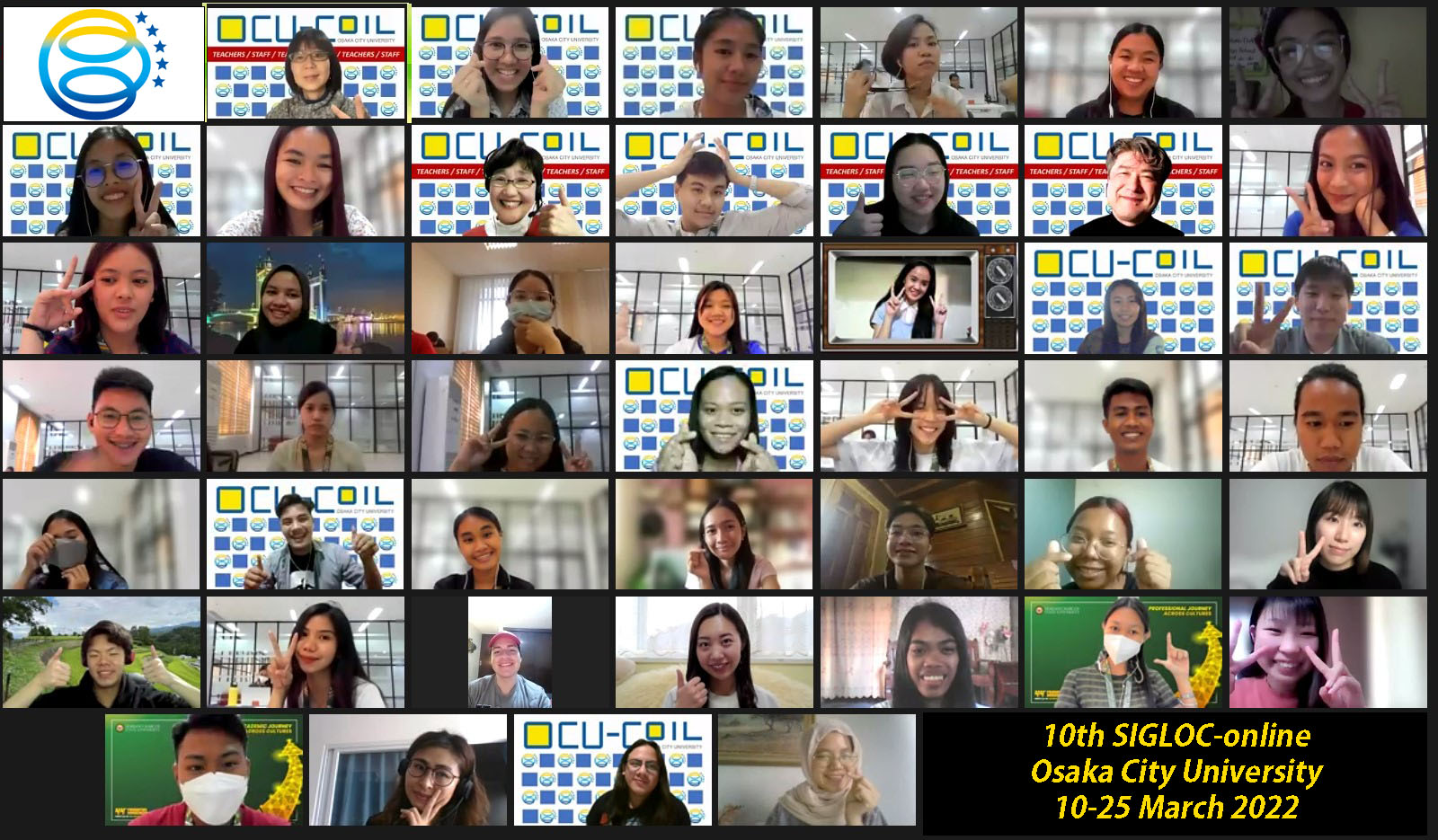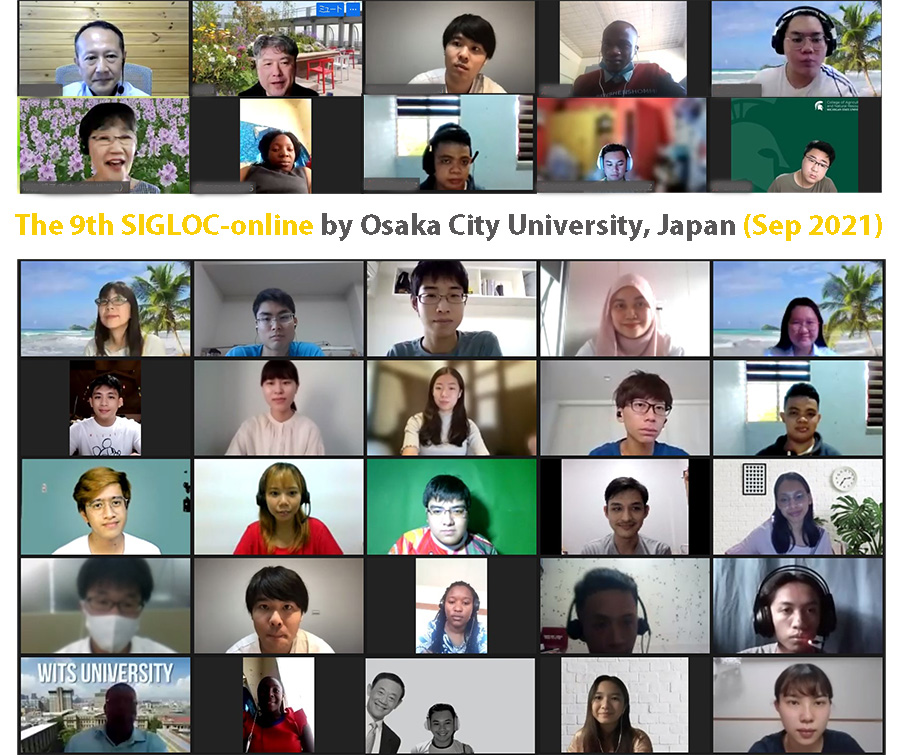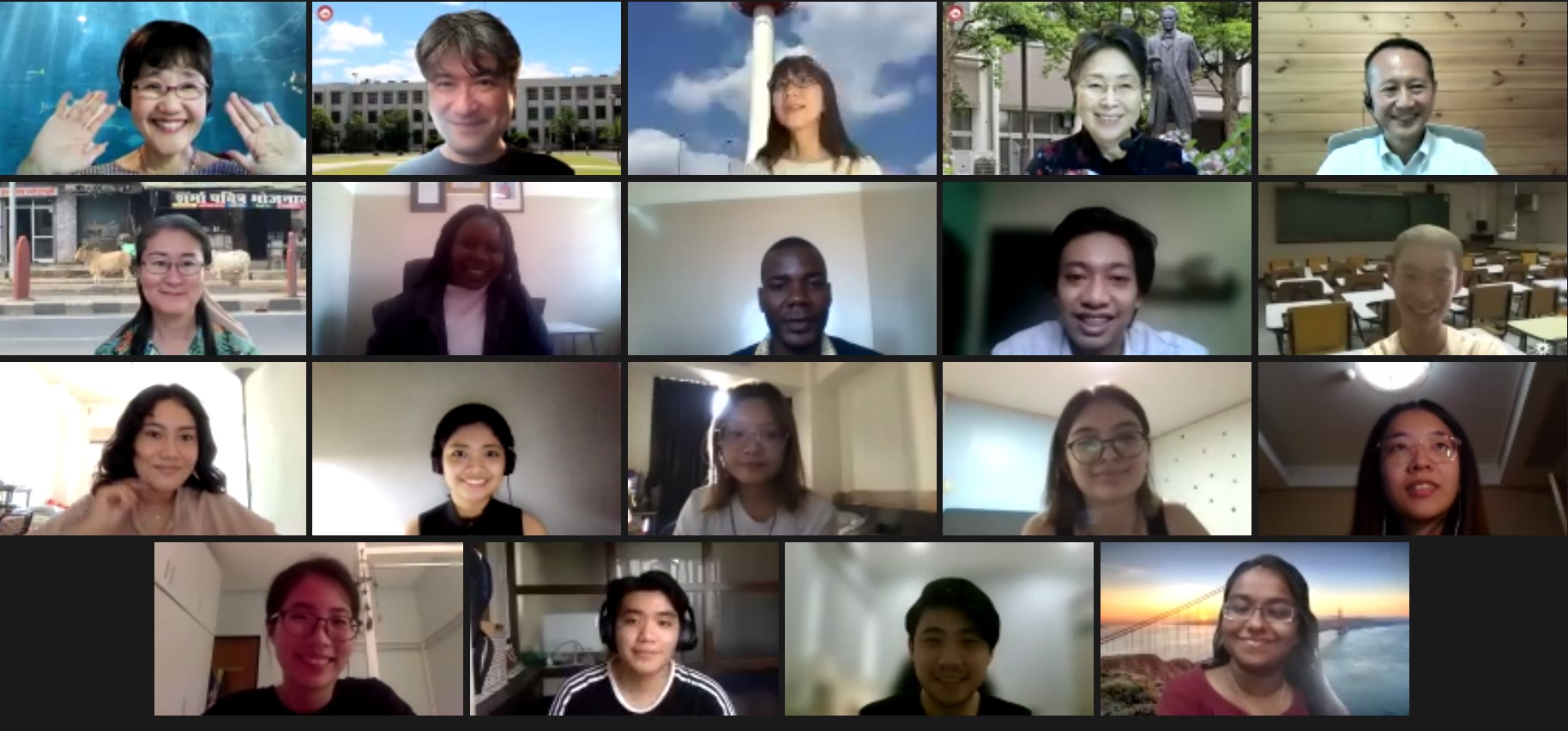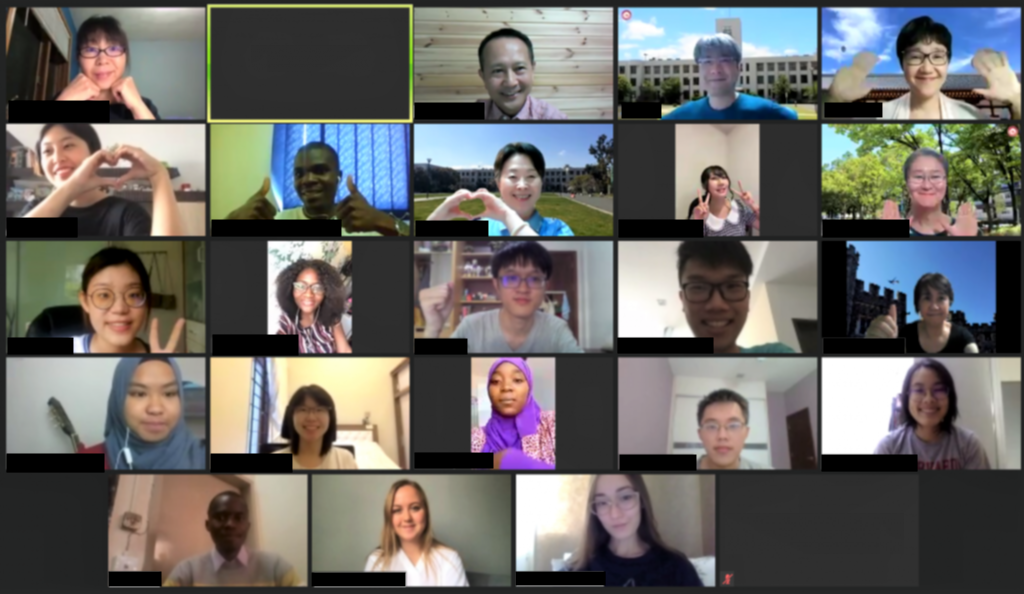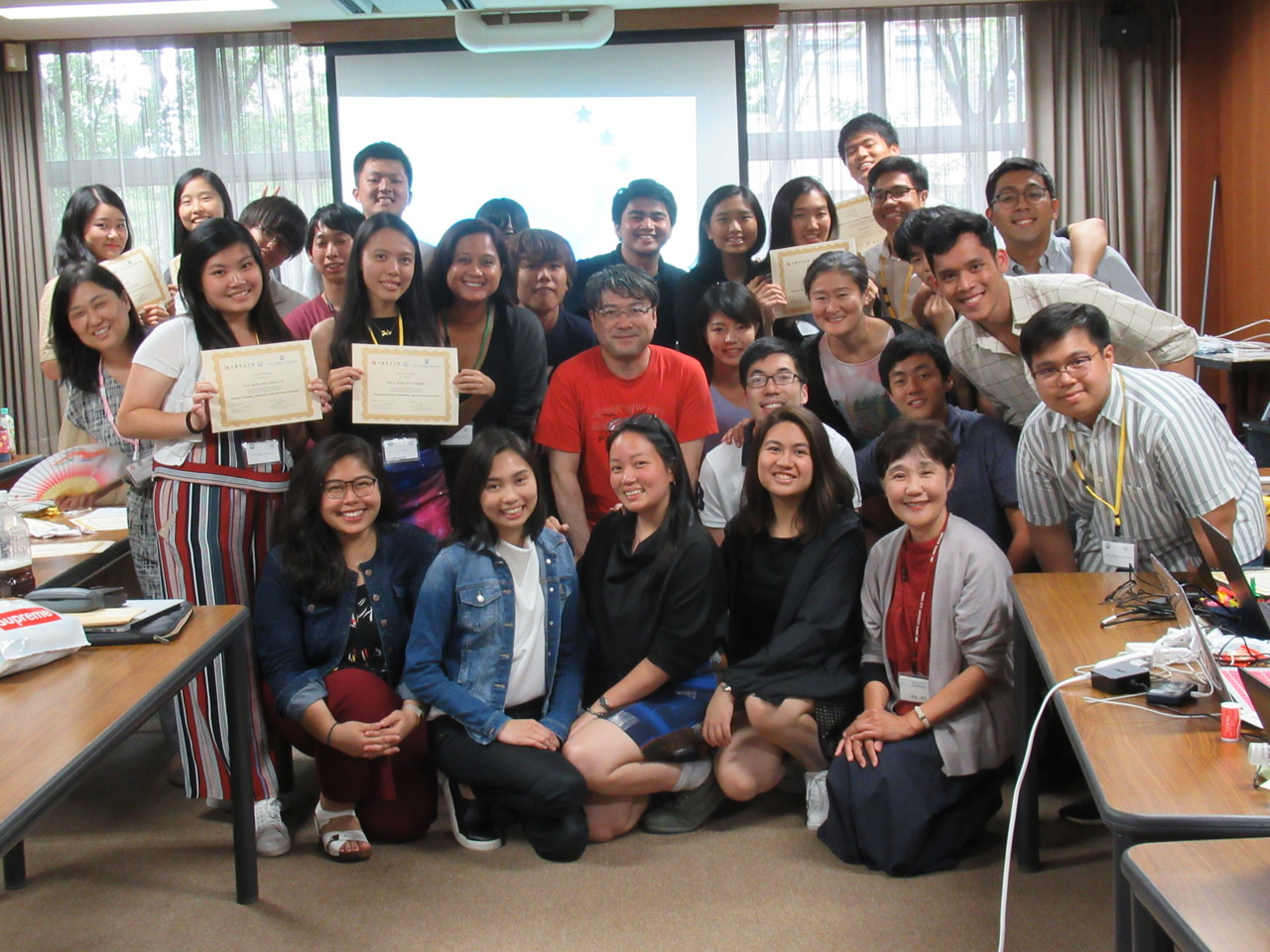
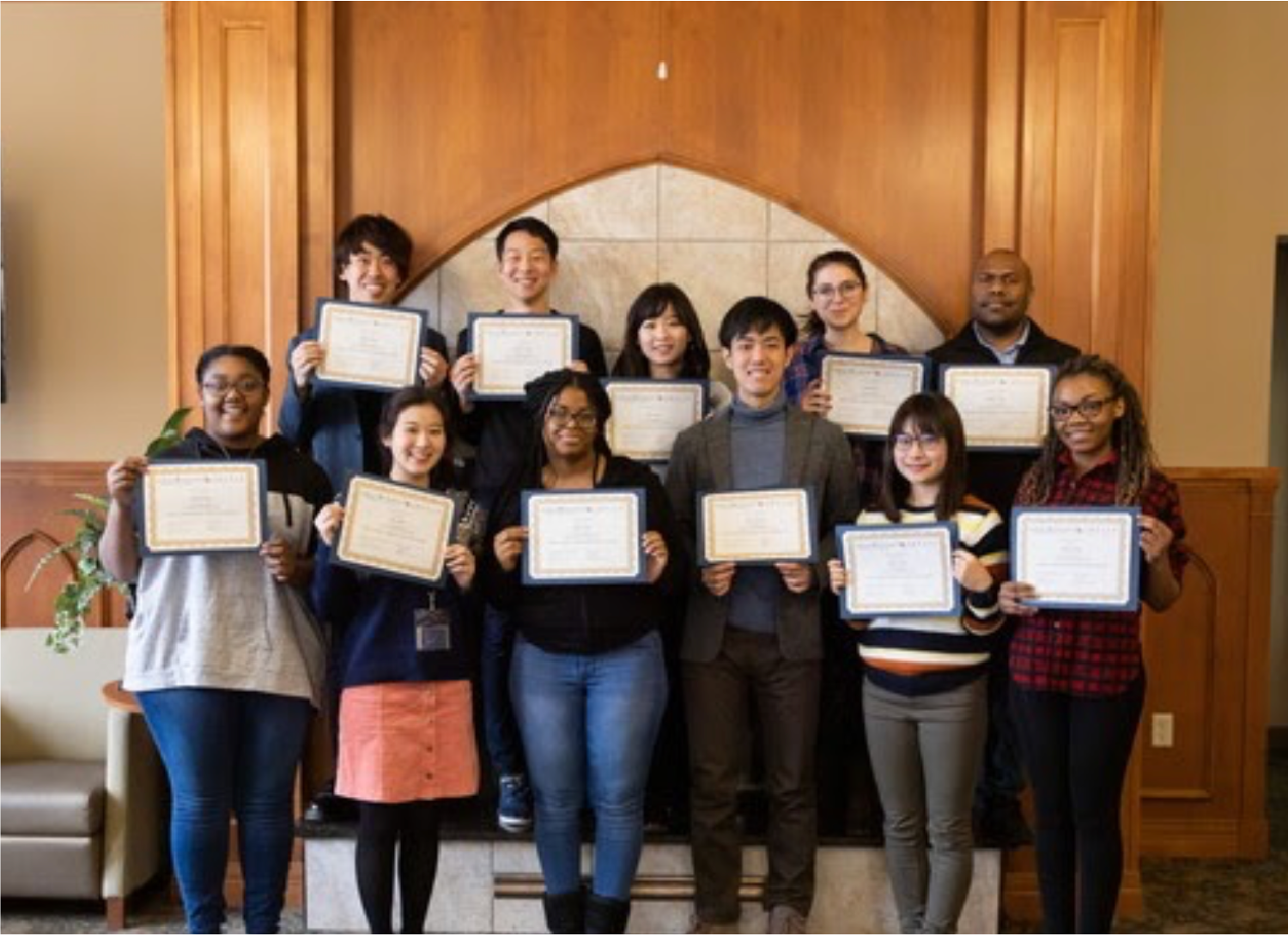
The 7th SIGLOC-online
Identifying Issues and Seeking Solutions to Climate Change,
Global Warming and Sustainability Issues
As a school selected for the FY 2018 Inter-University Exchange Project of the Ministry of Education, Culture, Sports, Science and Technology, Japan, Osaka City University (OCU) is implementing a Program to Develop Collaborative Social Innovators that uses Collaborative Online International Learning (COIL). As a part of this program, OCU conducts an intensive program called “SIGLOC” (Socially Innovative Global Classroom).
Since the spring of 2020, OCU has implemented an entirely online program entitled “Socially Innovative Global Classroom: Online” (SIGLOC-online) to provide international education unaffected by COVID-19.
Following the last year, SIGLOC-online started on March 12, 2021, and finished successfully on March 24, 2021. Leaflet
Guidance
A total of 30 students from 10 countries/regions, including OCU students gathered.
All the students and teaching staff participated from home.
The program theme this time is “Identifying Issues and Seeking Solutions to Climate Change, Global Warming and Sustainability Issues”.
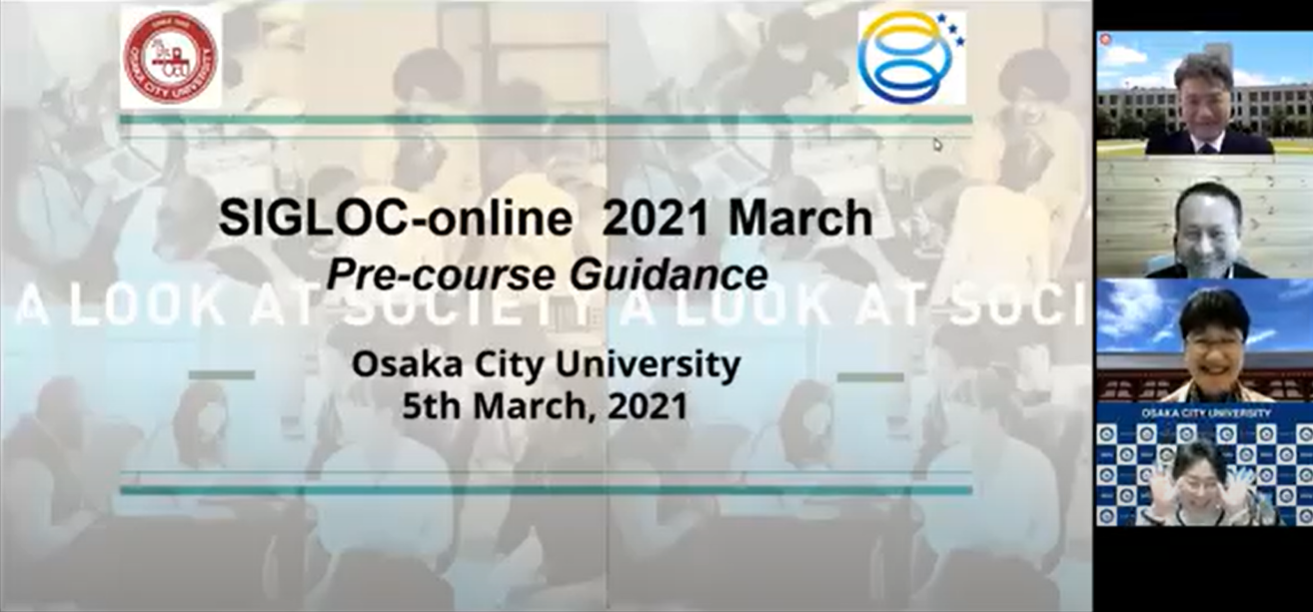
Guidance on March, 5
Opening Session
We held the opening session in two different time zones since the participants resided in different countries all over the world.
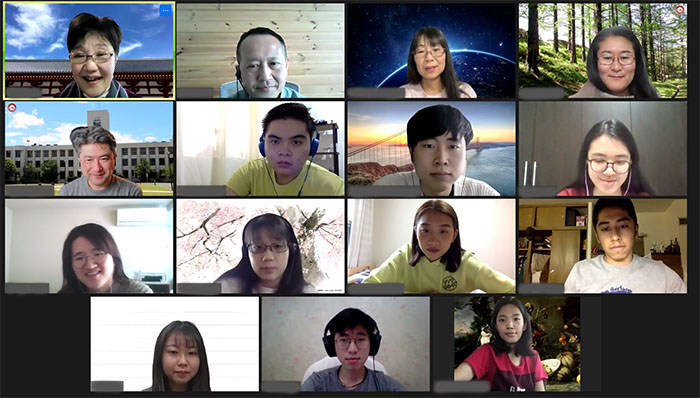
First day of SIGLOC: Opening Session on March, 12
Optional Session
As an optional session of SIGLOC-online, Roundtable Discussion Session with Hannan City, Osaka was held on Zoom.
Officers from Hannan City gave a mini lecture on Hannan City: location, history, industry, aging and civic activities, etc.
After the presentation, the participating students had an opportunity to discuss social issues with the Hannan City officers.
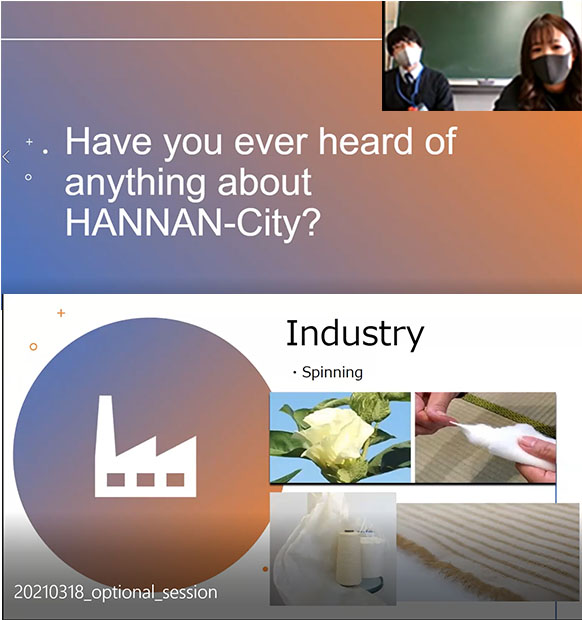
Optional Session by Hannan City on March, 18
Cultural Program
In the cultural program, the participating students created interesting team presentations.
Each of the presentation slides has original team names – Alpha, AFEAS, Sakura, and Dream – with lovely logos, and introduces the culture of each member’s country, such as food, language, costume, etc.
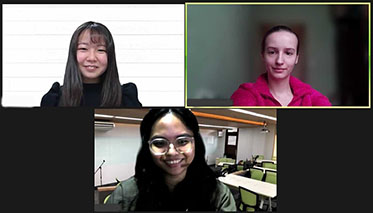

Each group gathered and discussed with adjusting to the time difference
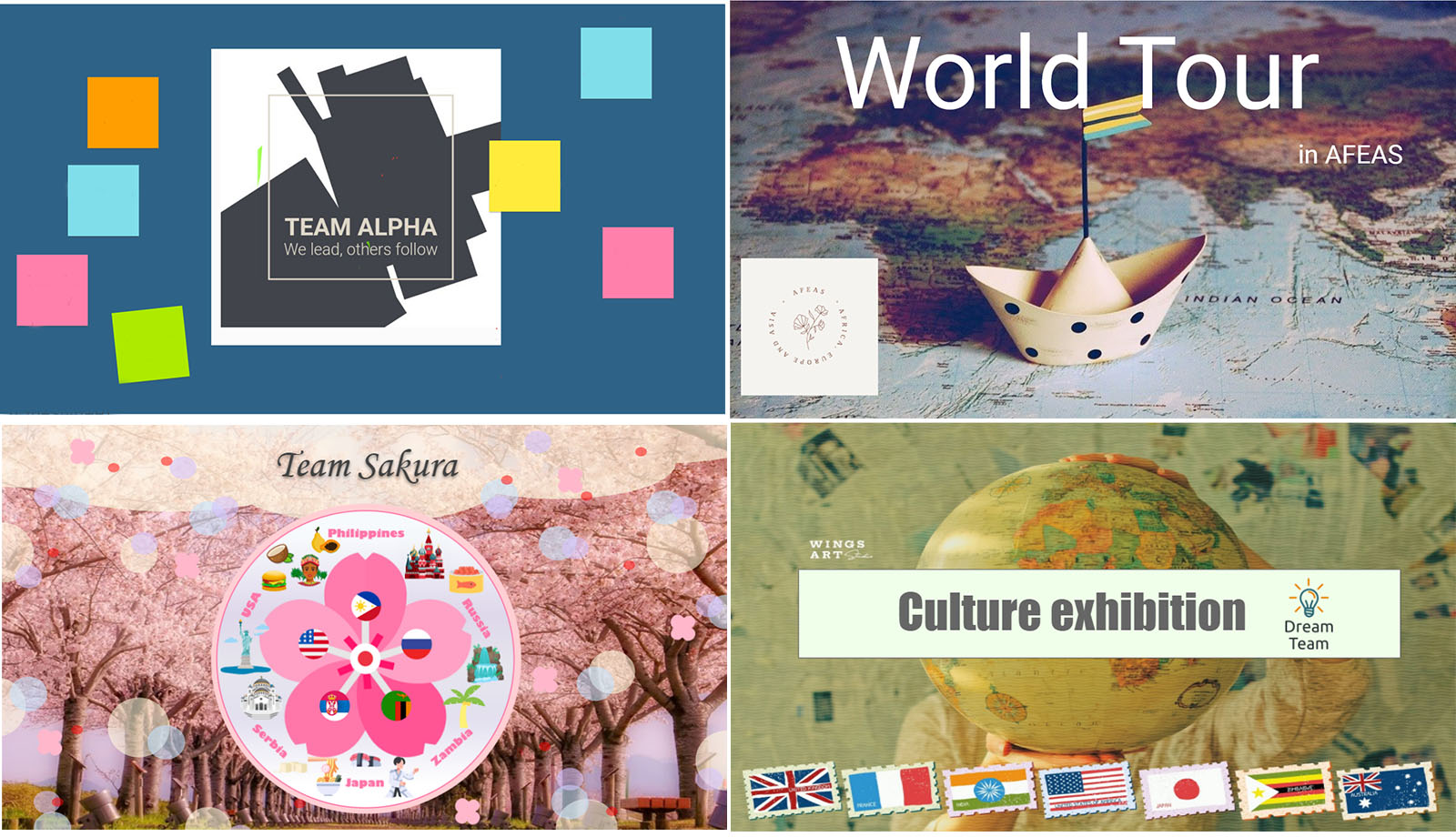
Culture Program presentation on March, 21: team names and logos of the four teams
Working on tasks: Research, Data Analysis, and Discussion
The students were divided into 8 teams (3-4 students each), and each team was given a different topic regarding the social issues that became apparent due to global warming and sustainability issues, such as:
Sub theme 1: Global / Minimal Supply Chain
Sub theme 2: Local Community
The participating students did research on each task at home, compared the characteristics among their countries to complete the reports, while sharing information online at any time.
Summaries & Reports
They presented the reports at a final debriefing session.
The final debriefing session was also held in two different time zones.
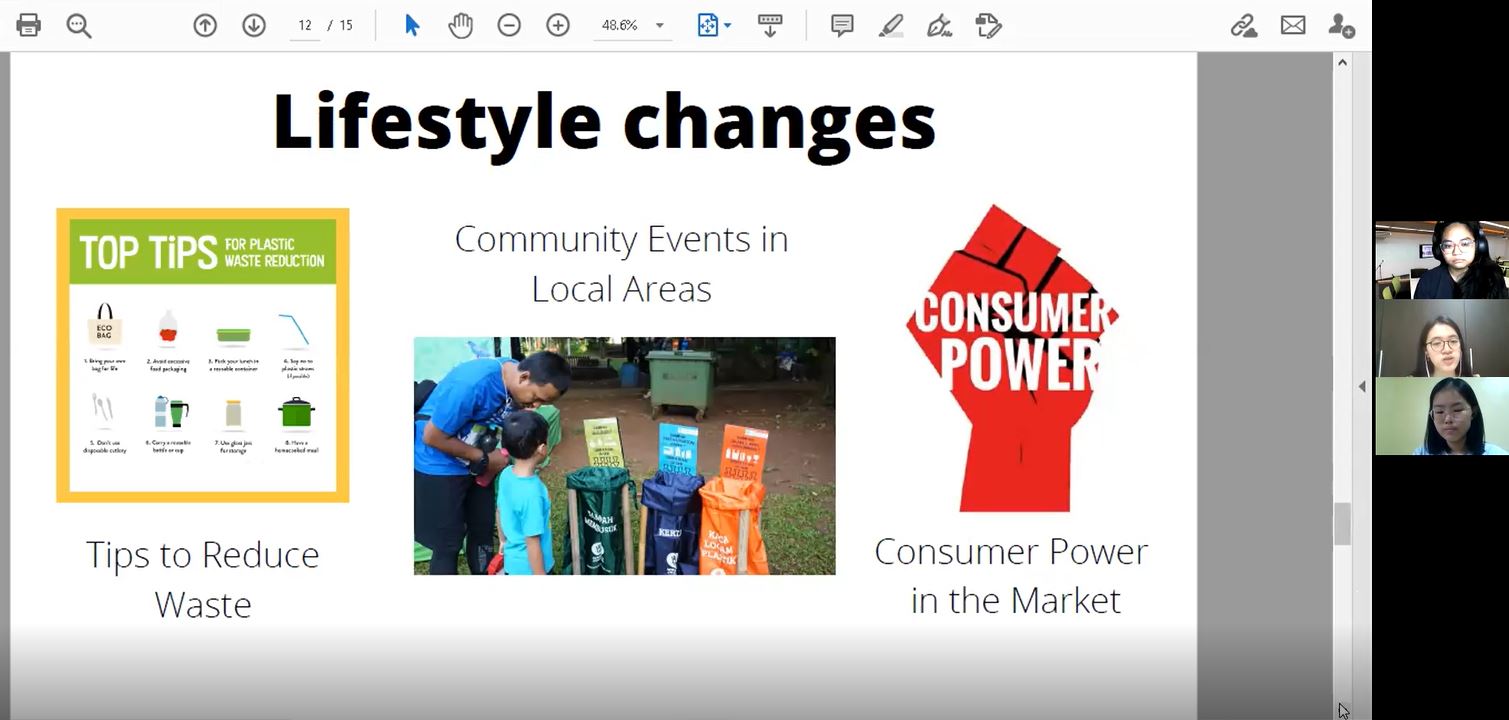
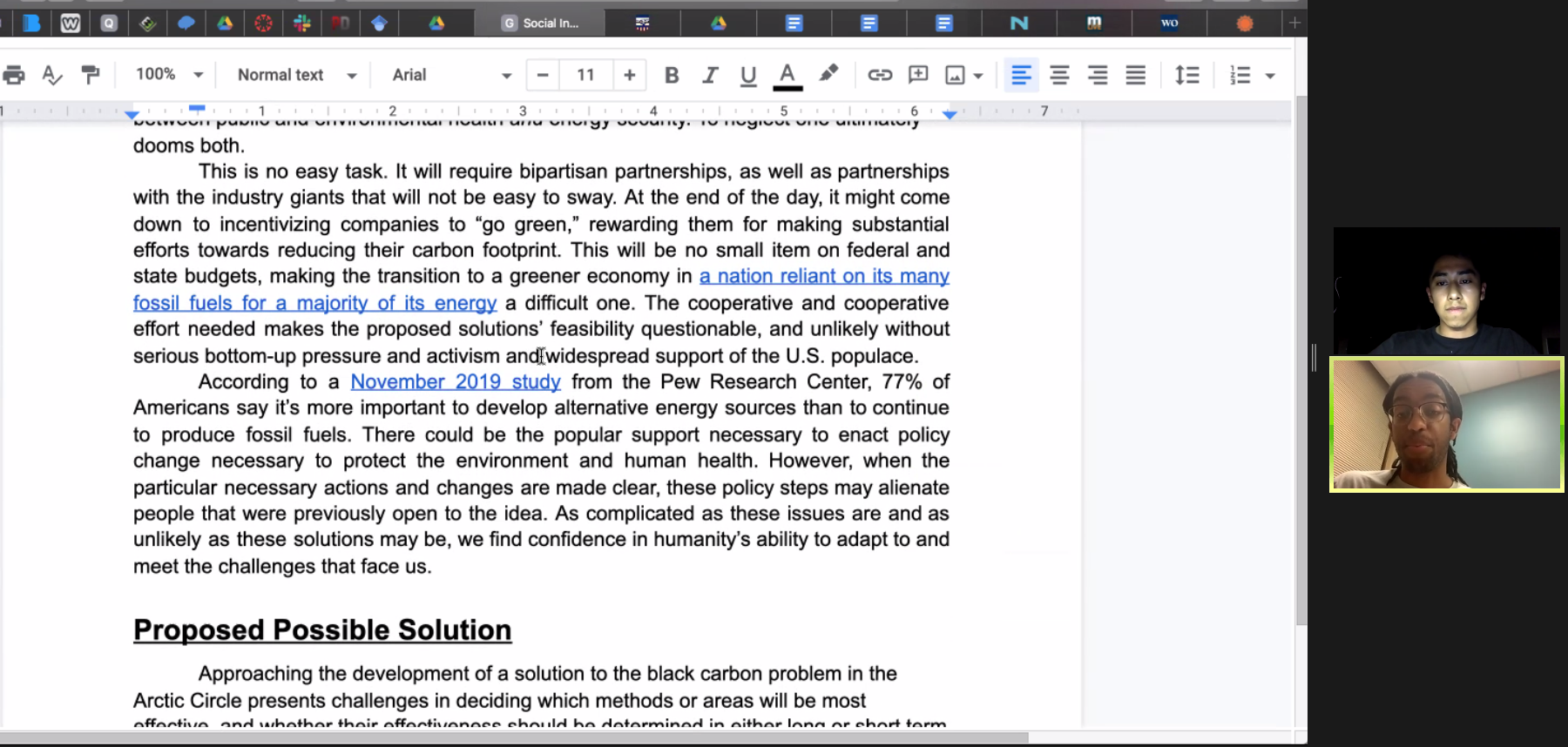
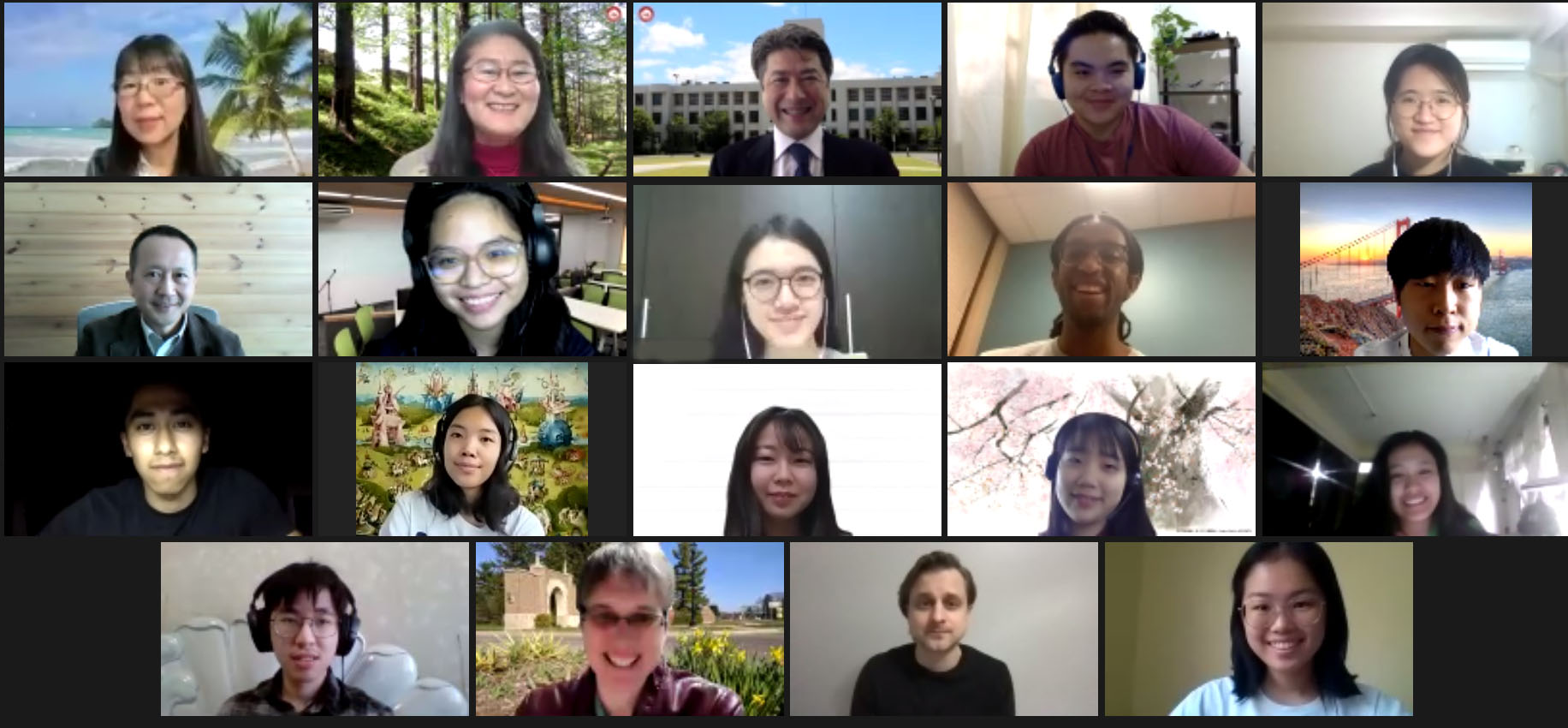
Final Debriefing Session 1: Asia/the USA on March 24, am
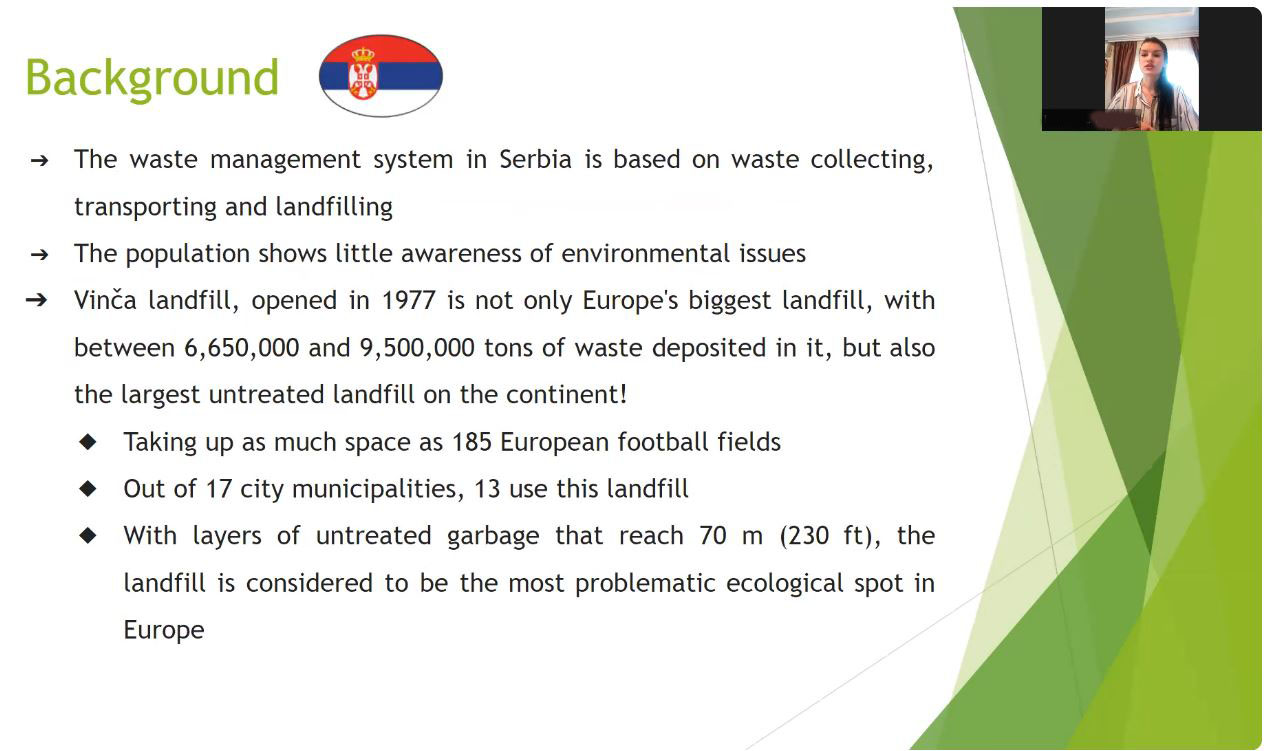
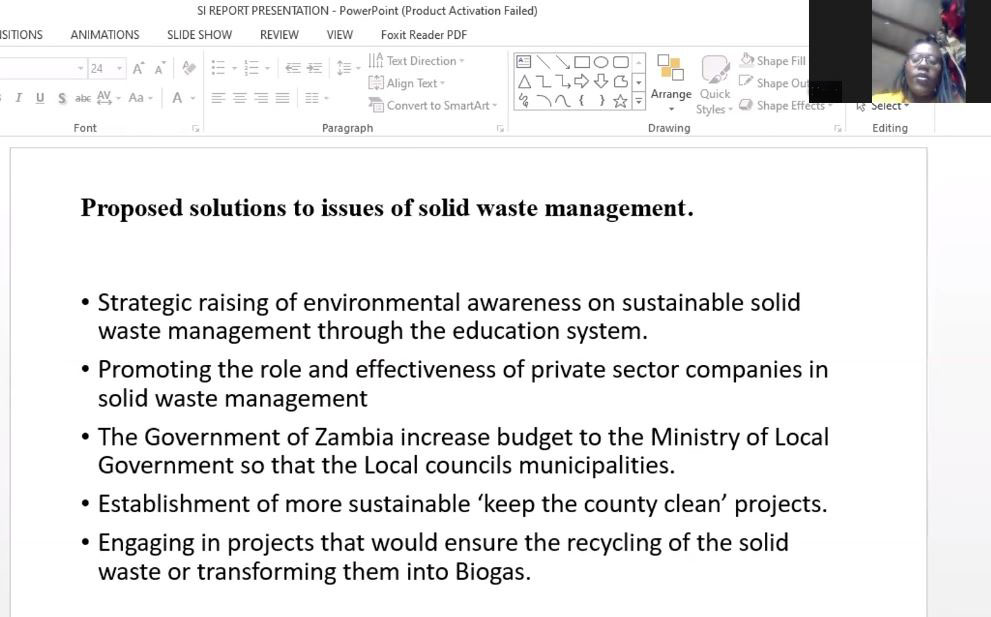
Final Debriefing Session 2: Europe/Africa on March 24, pm
After the end of the entire SIGLOC period, students who have completed all the assignments received a Certificate of Completion.
Summary of Feedback Results and
Pre & Post Self-Evaluation Results
NPS (Net Promoter Score)
NPS is an index that gauges the likelihood (rating 1-100) to recommend this activity/program to a friend or colleague.
7th SIGLOC-online: NPS 60.7

We conducted a questionnaire with the students who participated in this SIGLOC-online.
Please see the summary of the questionnaire results below.
7th SIGLOC-online_1_FeedbackResult_Summary
7th SIGLOC-online_2_SIGLOCMarch_PrePostResult
Through COIL education by working collaboratively with overseas students on social issues, students can gain awareness and learning that are different from the program provided locally. We will continue and put more efforts to develop similar educational programs.
2023年度

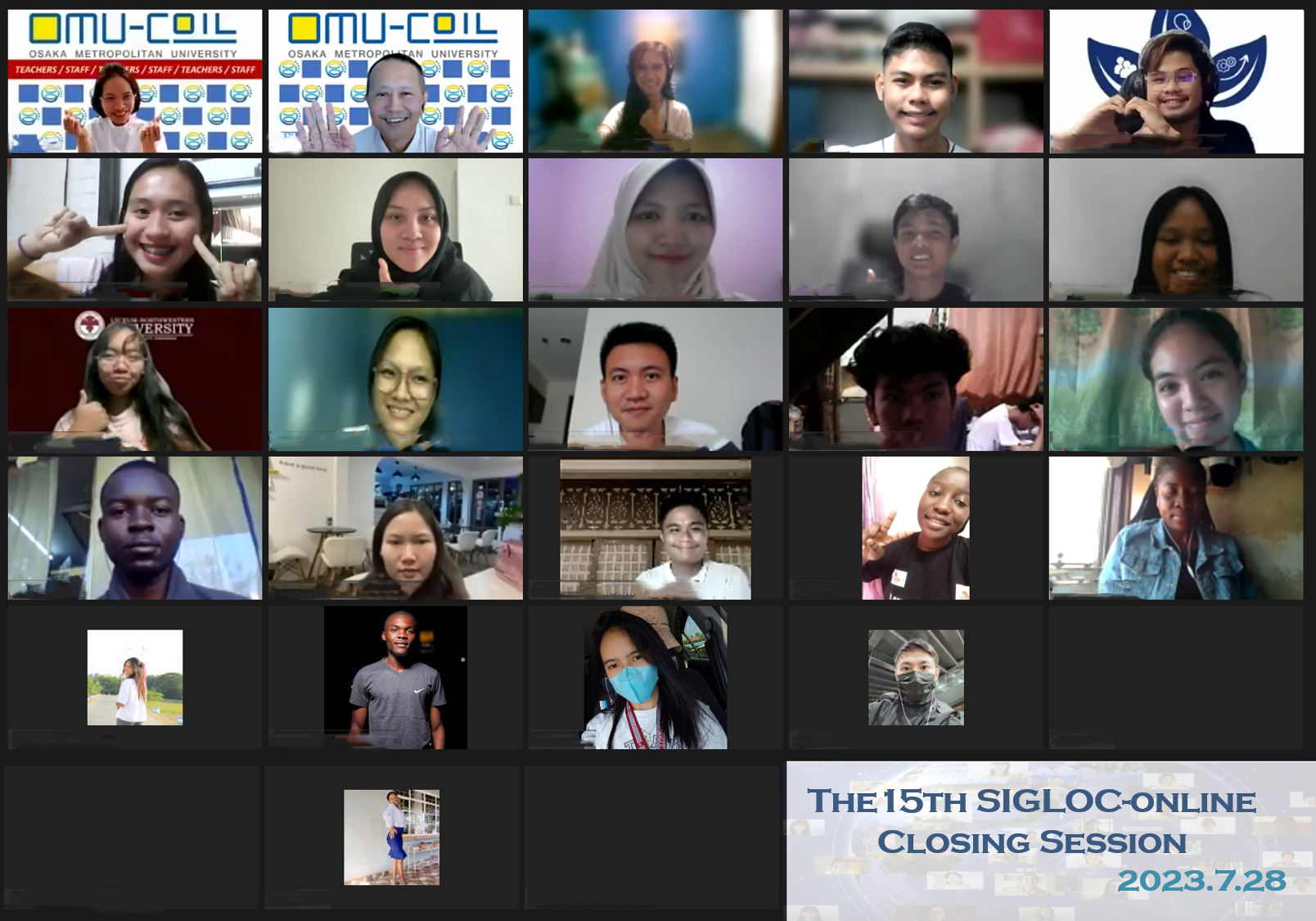
2022年度
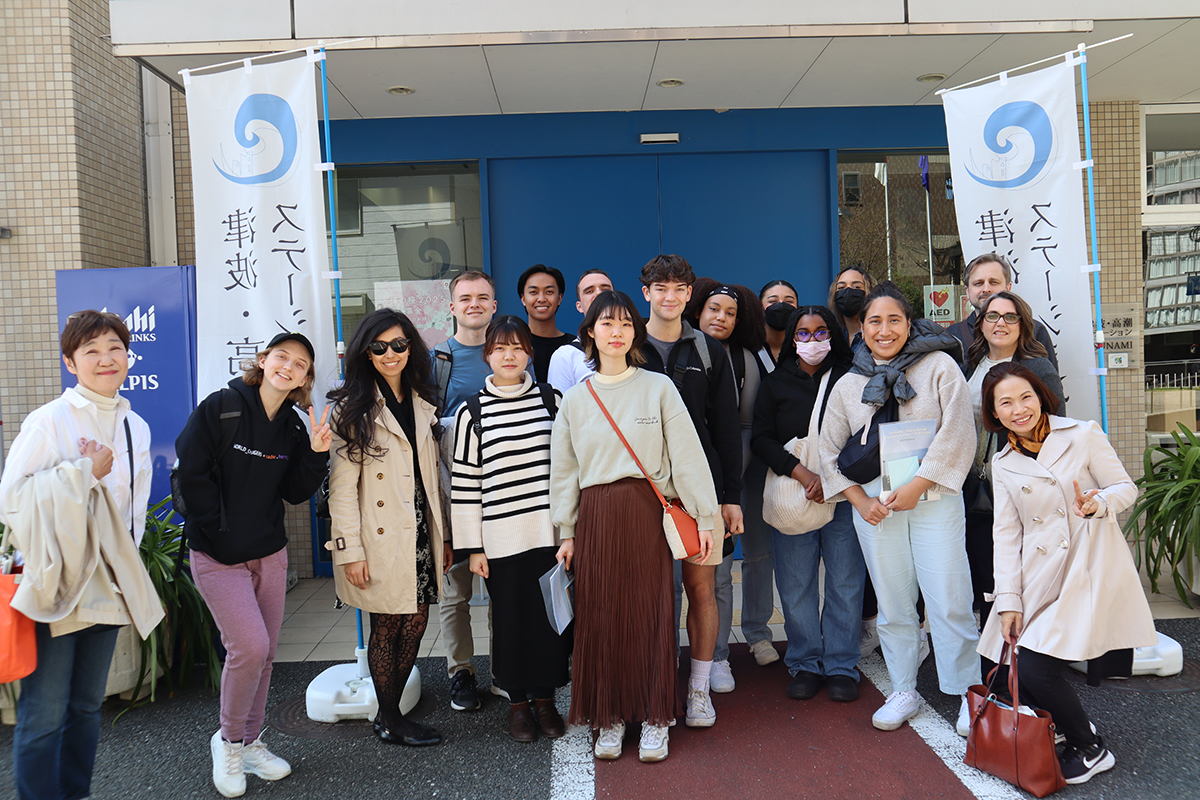
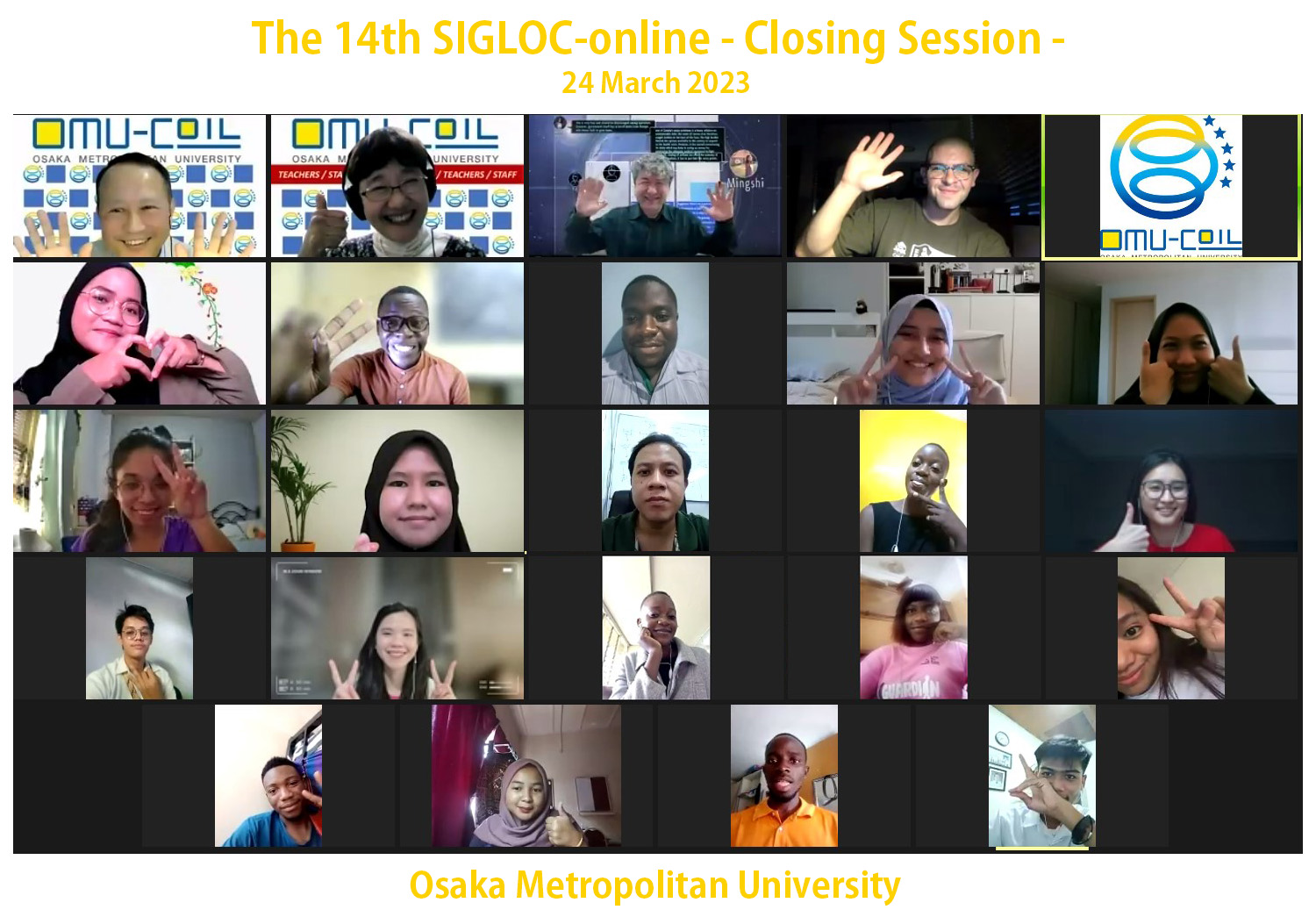
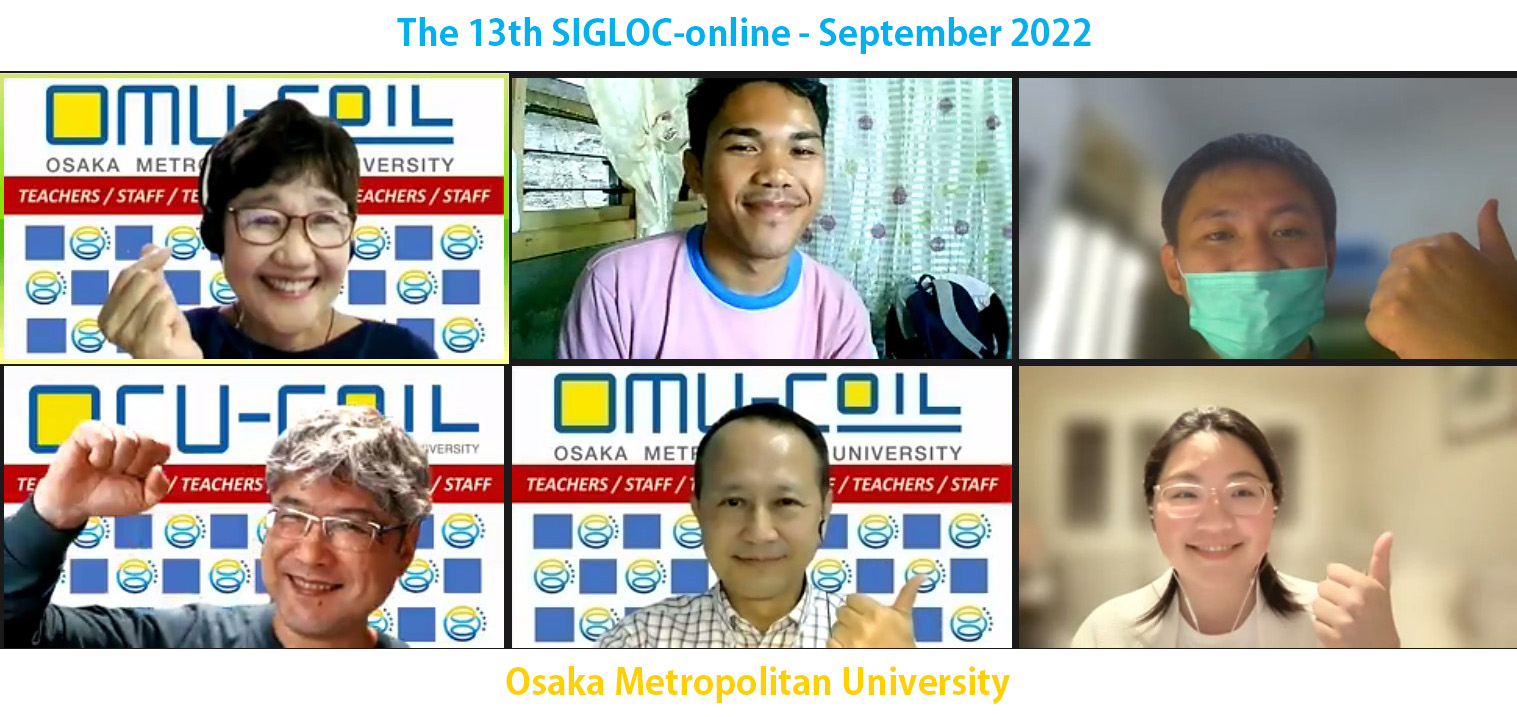
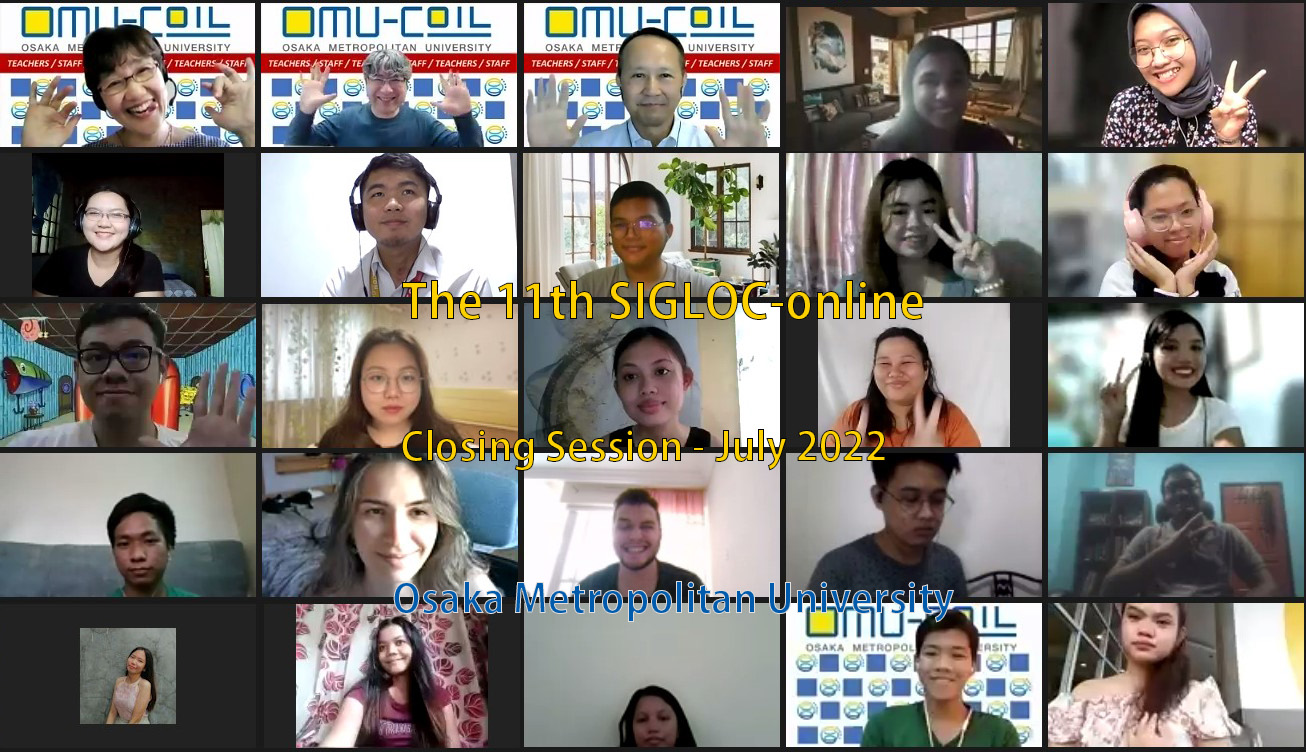
2021年度
